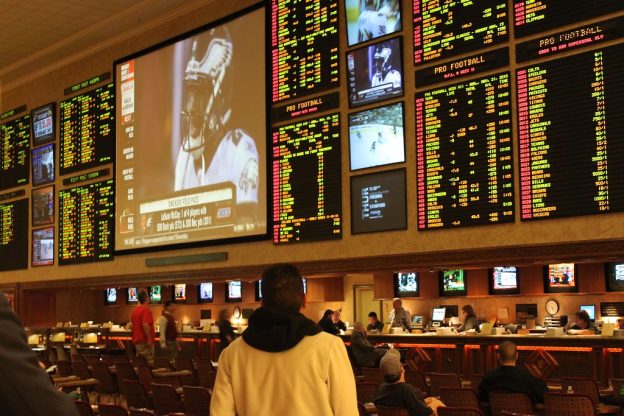CJ Olson – On January 25, 2024, New England Patriots rookie wide receiver Kayshon Boutte was arrested for allegedly illegally gambling underage while a student-athlete at LSU years prior.
Per reports, Boutte used an alias—Kayla Fortenberry—to place over 8,900 illegal bets, which included bets on games he played in. Not only that, Boutte bet on how many receiving yards he, specifically, would have in a game. The NFL has declined to comment on Boutte’s arrest. This case is without precedent. However, players have committed crimes before getting to the NFL and have still been punished in the NFL. Players have also been suspended for gambling, though all NFL punishments for gambling have been for violating the NFL’s policies despite being legal bets otherwise.
Despite the NFL’s rapid change embracing sports gambling, protecting the integrity of the sport— or “the shield”—has long been NFL Commissioner Roger Goodell’s main priority. This makes the Boutte arrest more interesting when considering the possible consequences the NFL may look to levy against Boutte. Historically, a common criticism from the public and the media against Commissioner Goodell is his inconsistency in player discipline, but there is still some precedent to consider what Boutte’s punishment might look like.
Betting on NFL games has long been a grave sin for players. Cardinals cornerback Josh Shaw gambled on an NFL game while on injured reserve, and his indefinite suspension lasted roughly 18 months before he was reinstated by the NFL. Since then, at least nine NFL players have been suspended for betting on League games, most notable among them is the All-Pro, star wide receiver Calvin Ridley. For the players who have been suspended for betting on League games, all of their suspensions were at least a full season in length. Several other NFL players have been suspended for betting on non-NFL events, where they were in violation of the rule disallowing otherwise allowed wagers at their team’s facility. These violations have carried only a six-game suspension.
The NFL wants to ensure that its betting policy promotes integrity by keeping any notion of player gambling away from team facilities and only allowing bets on sports other than the NFL. Given this concern, it’s understandable that part of the NFL’s investigation into Boutte will center around whether he placed any wagers in violation of the League’s policy since having been drafted by the Patriots. Based on the cases above, Boutte violating the NFL’s gambling policy—especially if it was by betting on an NFL game while in the NFL—could be a career ending mistake.
But even if the Boutte investigation turns up nothing, the NFL’s concern over “protecting the shield” could lead to the athlete facing punishment. As was the case with Ezekiel Elliott, a top draft pick in 2016. Before ever playing a down in the NFL, Elliott was punished with a six-game suspension after an investigation of an alleged domestic violence incident while he was at Ohio State—an incident in which he was never charged.
Additionally, Terrelle Pryor was suspended for five games as a rookie because he received improper benefits while playing quarterback at Ohio State. According to Commissioner Goodell, Pryor attempted to circumvent the NCAA punishment he faced by taking advantage of the rules for NFL Draft eligibility.
Based on these cases, Commissioner Goodell has established some level of precedent that behavior in college can lead to suspensions at the professional level. The League’s gambling punishments have also been extremely strict, especially when the violations are for NFL players betting on NFL games due to these wagers creating the most concern about the integrity of the league.
In Boutte’s case, having bet on the NFL while in the NFL will be the worst-case scenario for the wide receiver in terms of a punishment. But even if Boutte’s wagers on his own sport—and even himself—are limited to just his time in college, it does not mean it’s guaranteed that this investigation will result in no punishment. Due to the Elliott and Pryor precedents, it is probable that Boutte’s criminal charges could be dropped, though he still receives some form of punishment from the NFL.
Given that less egregious betting violations have resulted in six-game suspensions, the NFL could still hit Boutte with a similar suspension if his illegal wagers were limited to his time in college—and any other wagers in the NFL are in compliance with the NFL’s betting rules. If Boutte had bet on NFL games while a player in the League, he likely would face an indefinite suspension which would last for a minimum of one season and would require reinstatement from the NFL.


